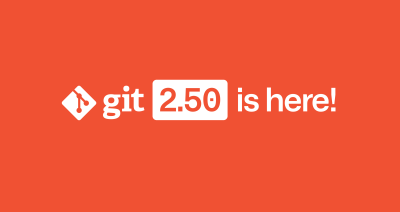Abigail Cabunoc Mayes
Abigail Cabunoc Mayes works at GitHub to help the open source ecosystem thrive — now and in the future.
We’re taking a look at how open source software has evolved on GitHub, and how the role of a maintainer and contributor has changed alongside the massive growth in open source software.

The open source movement quietly underpins all of the technology we use to live and work. Open source is about more than just technology or a license—it’s about creating a culture of participation and collaboration, where anyone can contribute to making the world a better place.
Open source software existed long before GitHub. But today, GitHub is the place where many in the open source community meet, inspire others, grow their projects, and get recognition for their work. When we announced passing the 100 million developer milestone on GitHub, we took a look at how the definition of the developer has evolved beyond just a person building software for technology companies. But that’s not all. The journey of working with and in open source has also evolved and I’d like to introduce you to some of our favorite maintainers of open source projects on GitHub to hear about their experiences.
We love to hear when a developer’s personal project on GitHub spreads and impacts developers all over the world. This is exactly what happened with Barbara Forbes, maintainer of PSSendGrid and a GitHub Star. We heard some of her story at GitHub Universe.
I was doing my day-to-day job, making my own solutions for problems I encountered in my work. Suddenly, I discovered that people were adding stars to the repository and creating issues! One of the modules that I didn’t expect at all, but it really took off was a wrapper about the SendGrid API. I thought maybe people can use this, so I’ll put this online. Then I checked and it had 40K downloads!
It’s one thing to know that your hobby project is used by developers around the world, but it’s another thing to know that developers are also excited to contribute to your project, making it better for everyone. That feeling is special because that’s when you’ve created something beyond a project—you’ve created a community! Open source projects can quickly grow from a single developer into a dedicated community working together to make it great. Just hear from Vue’s maintainer, Evan You.
When our user count reached a certain volume, Vue became a community. Suddenly, all these people were counting on me: contributors, educators, students. We had these core team members who were really passionate about it. Users building interesting stuff. It became bigger than I ever thought it could be.
As a project matures, many maintainers make room for new leaders and contributors in their work. From mentorship, to creating governance structures, to organizing meetups, a lot of unseen work goes into building a sustainable community and code base. In open source, governance is key to enabling smooth collaboration with a diverse group of people. Lorena Mesa shares some of her experience on the Board of the Python Software Foundation.
When people think of open source, they focus on the technical component. But it’s also about the collaboration. It takes a village to do this thing.
It’s important for maintainers to invite all kinds of contributions, not just code. Keeley Hammond, Electron maintainer, shares how she works to make space for new contributors, especially non-technical contributions.
We try hard to be welcoming and accessible to new contributors. But Electron can be an intimidating codebase to break into, even if you’re an experienced developer. When I started trying to contribute back to the project, I volunteered for less technical work to start: helping to organize a maintainer summit, gathering release notes, and writing blog posts.
Thousands of software companies and organizations build teams to scale and maintain open source projects because of the impact these projects have. Meta maintaining React, PickNik running the Robot Operating System’s MoveIt project, Quansight Labs’ work on NumPy, SciPy, and scikit-learn are all examples of organizations impacting foundational open source projects through employment and donations. Hear from Dmitry Vinnik from Meta’s open source program office.
Meta is all about scale–even Meta’s open source projects. Every year we publish a year in review. In our last review, we have over 800 active open source repositories.
Other projects are able to sustain themselves through donations using tools like GitHub Sponsors. At GitHub Universe, we spoke with Kovid Goyal, maintainer of Calibre, on his experience getting sponsored to work on open source full time.
Calibre grew a lot more than I expected. Once I put up a donate button, I started getting more than pizza money… I sat with my wife and we decided I would try to make this go full time. It’s been going well ever since!
Open source will continue to be the foundational bedrock to our world of technology. It’s up to all of us to cultivate open source communities and give back to projects we rely on. We are excited to continue our support for open source and provide tools for the next 100 million developers–whether they’re artists, organizers, coders, or more.
Interested in making your first contribution?
Check out How to Contribute to Open Source.
Interested in finding the next best project to contribute to?
Check out GitHub Explore.

Today, the Git project released new versions to address seven security vulnerabilities that affect all prior versions of Git.

The open source Git project just released Git 2.50. Here is GitHub’s look at some of the most interesting features and changes introduced since last time.

Get insights on the latest trends from GitHub experts while catching up on these exciting new projects.